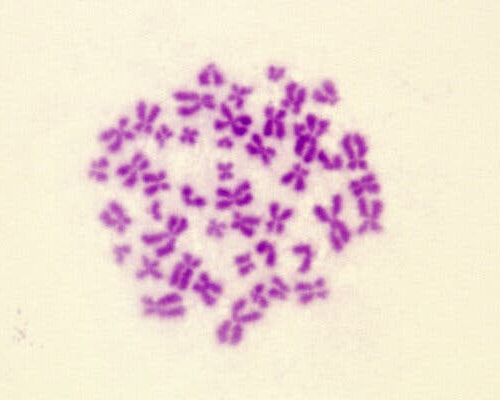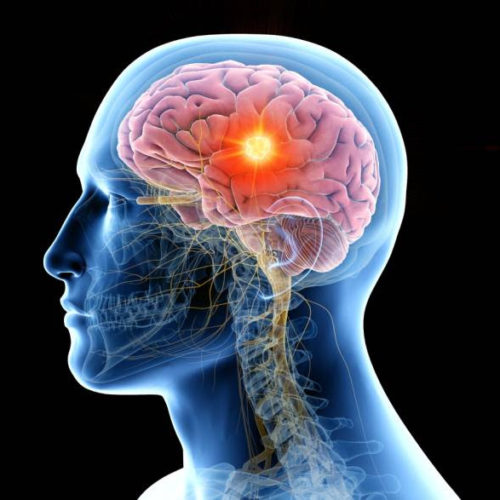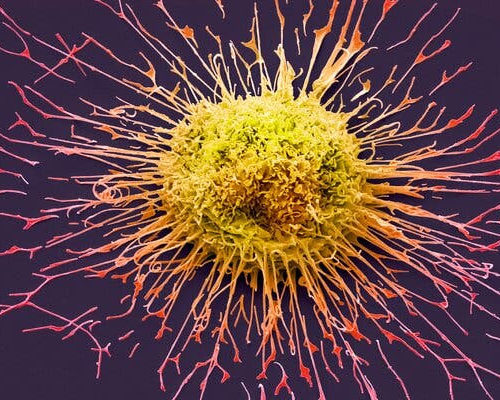By Carl Zimmer Published July 23, 2021, Updated July 26, 2021 Two decades after the draft sequence of the human genome was unveiled to great fanfare, a team of 99 scientists has finally deciphered the entire thing. They have filled in vast gaps and corrected a long list of errors in previous versions, giving us...
Tag: <span>scientists</span>
Scientists figured out a cool way to read your brain
By Andy Meek @aemeek April 5th, 2021 at 11:28 PM Among the many buzzy pet projects and aspirations which you sometimes hear tech moguls like Elon Musk and Mark Zuckerberg talk about that fall outside of their company’s core missions is the development of a dystopian-sounding direct link between computers and the human brain. The creepiness factor notwithstanding, they’ll...
How Scientists Shot Down Cancer’s ‘Death Star’
By Gina Kolata A colored scanning electron micrograph of a cell of a common type of lung cancer, called non-small cell cancer. A new drug targets the mutated protein that leads to uncontrolled growth. Credit…Steve Gschmeissner/Science Source After 40 years of effort, researchers have finally succeeded in switching off one of the most common cancer-causing genetic mutations in...
The first coronavirus vaccines have arrived. Here’s where the rest stand
By Jonathan Gardner, Ned Pagliarulo, Ben Fidler Approvals for vaccines developed by Pfizer and Moderna have kicked off immunization campaigns in the U.S. and Europe. Others could come soon as late-stage trials wrap up.By Jonathan Gardner, Ned Pagliarulo, Ben Fidler Scientists, drugmakers and governments have moved with unprecedented haste to develop a vaccine against the new coronavirus. The...
Scientists map the human proteome
UNIVERSITY OF BRITISH COLUMBIA Twenty years after the release of the human genome, the genetic “blueprint” of human life, an international research team, including the University of British Columbia’s Chris Overall, has now mapped the first draft sequence of the human proteome. Their work was published Oct. 16 in Nature Communications and announced today by the Human Proteome Organization...
Scientists find a way to plant ideas in people’s DREAMS
Scientists in the US have found a way to plant ideas in people’s heads as they sleep to make them have bizarre, abstract dreams. Using so-called targeted dream incubation (TDI), experts at the Massachusetts Institute of Technology (MIT) have been able to guide people’s dreams toward particular themes by repeating information during the earliest stage...
Scientists discover the earliest steps in the development of an immune response
by University of Birmingham The process of white blood cells responding to infections begins earlier than previously thought, according to a new study by scientists at the University of Birmingham. When the body is infected, the white blood cells that make up the immune system step into action to fight back. However, the process of developing...
Gene therapy for inherited blindness
by Ludwig Maximilian University of Munich Retinitis pigmentosa is the most prevalent form of congenital blindness. Using a retinitis pigmentosa mouse model, LMU researchers have now shown that targeted activation of genes of similar function can compensate for the primary defect. As many as 40,000 people in Germany suffer from retinitis pigmentosa. This hereditary disorder...
Scientists say Hong Kong man got coronavirus a second time
by Marilynn Marchione This electron microscope image made available and color-enhanced by the National Institute of Allergy and Infectious Diseases Integrated Research Facility in Fort Detrick, Md., shows Novel Coronavirus SARS-CoV-2 virus particles, orange, isolated from a patient. University of Hong Kong scientists claim to have the first evidence of someone being reinfected with the...
Scientist unveils a 3-D printed device to excite nerves
by Jim Barlow, University of Oregon A tiny, thin-film electrode with a 3-D-printed housing has been implanted in the peripheral nervous system of songbirds, where it successfully recorded electrical impulses that drive vocalizations. The research is seen as an advance in the emerging field of bioelectronic medicine and eventually could lead to a new treatment...








